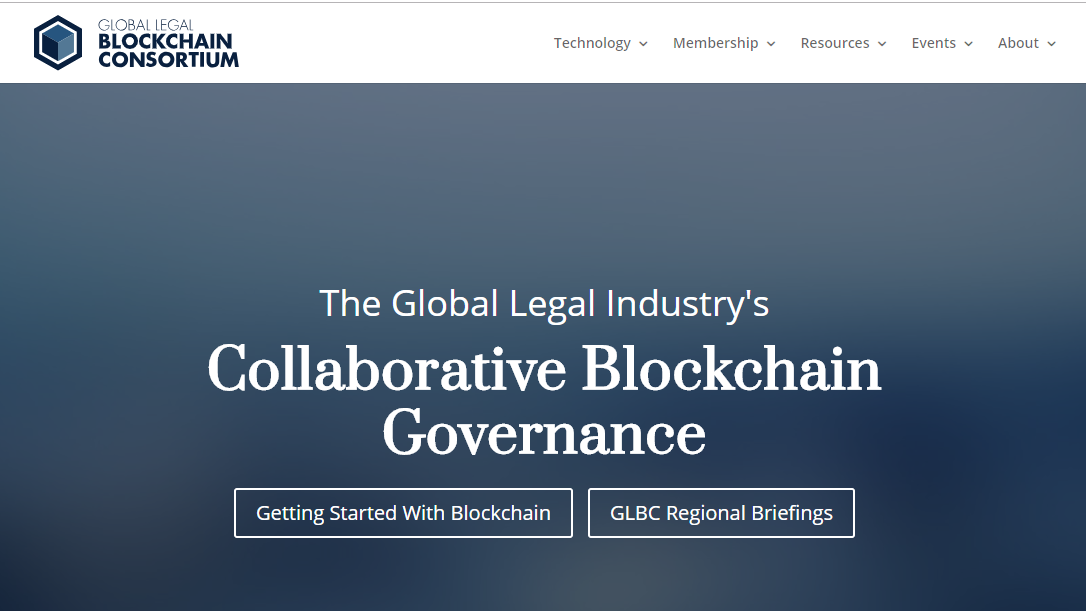August marked the first anniversary of the formation of the Global Legal Blockchain Consortium, an organization created to drive the adoption and standardization of blockchain in the legal industry. In that time, the GLBC has grown to have 125 organizations from 20 countries as members and is the third-largest blockchain consortia in the world in any industry, with major law firms and legal companies as members.
Today, with the aim of further accelerating understanding and adoption of blockchain in legal, the GLBC is unveiling three initiatives for members:
- A series of non-technical blockchain guides for law firms and legal departments.
- A global series of 25 regional briefings on blockchain in law.
- A free “Blockchain 101” course for legal professionals and staff.
Yesterday, I was briefed on these initiatives by David A. Fisher, founder and CEO of blockchain company Integra and a founder of the GLBC.
Fisher says these initiatives represent the fact that, after a year of work getting organized and building membership, the GLBC is now in a position to begin to fulfill its mission. He defines that mission as this:
The mission of the Global Legal Blockchain Consortium is to organize and align global legal industry stakeholders to enhance the security, privacy, productivity, and interoperability of blockchain technology. Furthermore, the GLBC promotes a universal blockchain-based technology infrastructure for law.
Blockchain Guides
The first of the initiatives unveiled today are two blockchain guides: “The Blockchain Enabled Law Firm” and “The Blockchain Enabled Legal Department.” Both are designed to be non-technical guides for legal industry leaders to help them manage the roll-out of blockchain-integrated legal software, which some will be doing by the end of the year and in early 2019.
Fisher points out that, at the recent GLBC annual meeting held in conjunction with the ILTA annual meeting in August, there were 13 blockchain demonstrations and presentations by companies such as NetDocuments, Thomson Reuters and Wolters Kluwer. (See videos of these presentations here.)
“Blockchain is about to move from the hypothetical to the mainstream, in the daily operation of the world’s legal industry,” he says.
Global Briefings
Starting next week, the GLBC is beginning a series of global briefings in cities including Bangalore, Dubai, Hong Kong, London and Paris, as well as many cities throughout North America. Current GLBC members will serve as local hosts of the meetings. For example, Thomson Reuters will host the briefing in Hong Kong on Oct. 24 and Latham & Watkins will host in Dubai on Oct. 29.
The briefings will continue into 2019, Fisher says, with the goal of educating legal industry leaders about the rapidly approaching application of blockchain technology to the business of law. The briefings will also review the 2019 roadmap for the GLBC and how organizations can participate.
The briefings are free to attend. A complete list can be found here.
Blockchain 101
The GLBC’s final announcement today is a “Blockchain 101” course that is free for members. It is intended for anyone interested in learning the basics of blockchain, but is best suited for larger legal organizations that want to quickly boost the knowledge of large numbers of lawyers and staff.
The course will be offered via webinar or in person, and it can be tailored for the specific needs of the largest organizations. Information on the course can be found here.
GLBC Membership
While the briefings are open to anyone, the guides and the course are offered only to GLBC members. There is no cost for an organization to join the GLBC. Instead, members are are asked to commit to sponsoring or supporting a blockchain project.
Fisher tells me that projects can be collaborative in nature — such as a law firm or legal department working together with a software company to add blockchain functionality — and do not need to be expensive or complex.
The current roster of members includes law firms such as BakerHostetler, Latham & Watkins, Seyfarth Shaw and Shearman & Sterling; companies such as Thomson Reuters, Liberty Mutual and IBM; and organizations such as Michigan State University College of Law, Suffolk University Law School, and BYU Law.
“The point of this unique membership structure is to incentivize investment in and rapid adoption of blockchain technology,” Fisher says, “and based on the impressive demonstrations at the GLBC annual meeting, it clearly seems to be working.”
 Robert Ambrogi Blog
Robert Ambrogi Blog